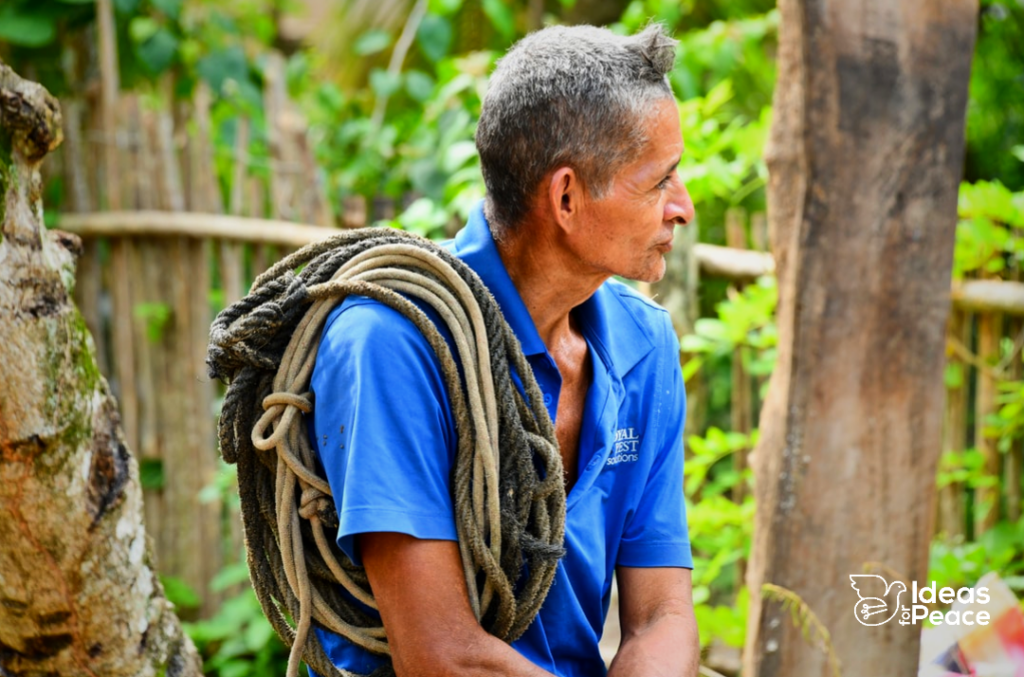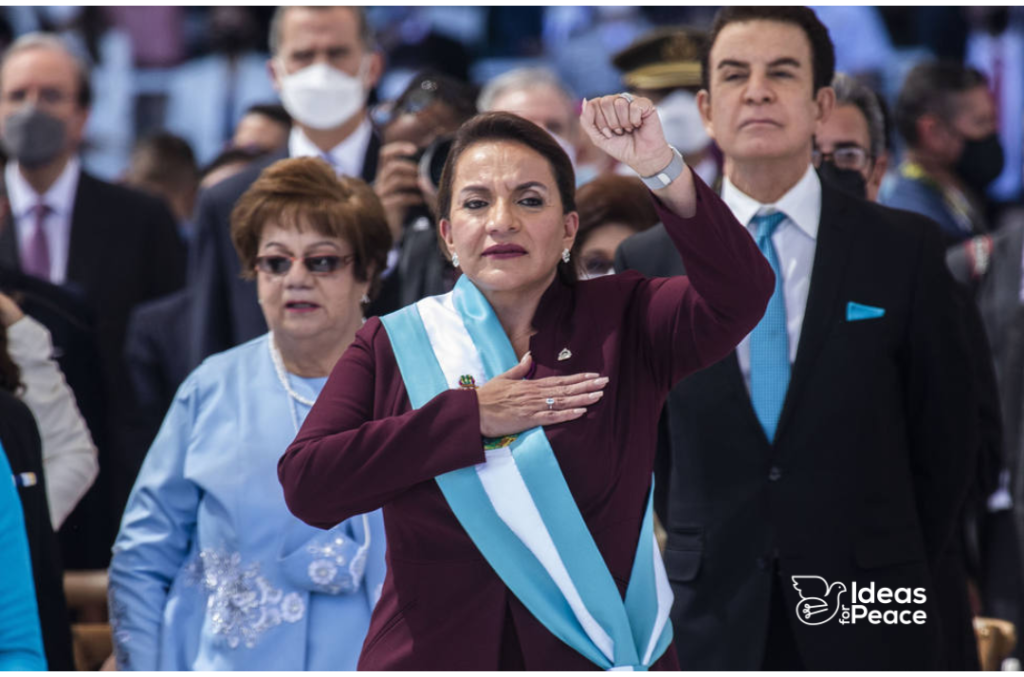La intratabilidad del conflicto agrario del Bajo Aguan

La intratabilidad del conflicto agrario del Bajo Aguan, retos hacia el establecimiento de la paz Autora: Josselyn Nohely Estrada Matute El conflicto agrario del bajo Aguán, a diferencia de la mayoría de los conflictos por tenencia de tierras, no tiene su origen inicialmente en una acción ilegal de despojo. Si no más bien surge desde […]
Honduras elige a la primera mujer Presidenta: ¿Qué representa para la paz y la democracia?

Honduras elige a la primera mujer Presidenta: ¿Qué representa para la paz y la democracia? Autora: Edith Orestila Martínez Traducido al Inglés por Marta Álvarez Collado El 28 de noviembre del 2021 se celebraron elecciones generales en Honduras. El ambiente previo estuvo plagado de una creciente y preocupante violencia política en conjunto con graves discursos […]
History Repeats Itself? Costa Rican History Applied to the Honduran Conflict
Whether or not the present Honduran interim government will be fully recognized by the international community remains to be seen. For the time being, however, states must still decide when and how to conduct relations with the military-appointed government, balancing concerns for pressing international issues with the expected validity and permanence of agreements made with that entity. In making such calculations, states must consider the legal status of that government as the valid representative of the Honduran State in international law. Status under law helps define how a state, and therefore its treaties, agreements and contracts, will be treated in courts, tribunals and organizations abroad. This essay uses the legal issues presented in a similar historical case, the 1923 Tinoco Arbitration between Great Britain and Costa Rica. George McGraw analyzes Honduras’ current status in international law. He argues through the application of basic international legal principles such as state continuity, effectivity, and de facto vs. de jure legitimacy. According to the author, this essay hopes to contribute to the current dialogue concerning the transitioning state.
Tigo celular no está contigo en Honduras
Maria Suarez Toro reports from Honduras, where feminist organizations continue to oppose the coup, and stand up to the pressure of elite business interests.
Honduras: The Forgotten Coup
Contributing columnist Gustavo Fuchs details the lack of media coverage of violent repression against the popular resistance movement in post-coup Honduras, contrasting the underreported Honduran realities with the media’s recent obsession with popular demonstrations in the Middle East. Fuchs highlights the Honduran government’s repressive response to teachers’ strikes and impunity towards campesino murders – virtually absent in the headlines. Selective media bias in support of hypocritical Western agendas has left the Honduras resistance to fend for itself while the Middle East gets all the attention.
Why Honduras matters to Chavez
Why Honduras matters to Chavez Author: Will Grant Originally Published at Peace and Conflict Monitor on: 07/07/2009 As the situation unfolds at pace in Honduras, state television in Venezuela is not letting up on its coverage. It interviewed President Manuel Zelaya live from his airplane as he tried to return to Honduras on Sunday […]
Aftershocks of Honduras’ Political Earthquake
Is the coup d’état in Honduras a mirror that the FMLN government of Mauricio Funes, El Salvador’s armed forces, grassroots movement and political parties ought to be looking into? If they do so, what will it show them?
The Deportation Death Sentence: An analysis of the United States’ role in perpetuating Human Rights abuses against should-be Honduran refugees
The past few years have been unprecedented in the United States, as a record-setting number of Latino immigrants crossed its southern border, including thousands of unaccompanied minors. Recognizing that many of these children were fleeing severe gang and cartel violence, the United Nations began advocating for the recognition of organized crime as a potential cause for refugee status. Children crossing the border are often in need of international protection, but it goes undocumented and underprovided. In this paper, I will analyze how the United States’ unwillingness to recognize certain children as refugees is perpetuating grave abuses in human rights for children fleeing gang and cartel violence with a specific focus on Honduras.
The Community of Latin American and Caribbean States (CELAC) and Latin American Integration for the 21st Century
Tara Ruttenberg and Gustavo Fuchs analyze the creation of the Community of Latin American and Caribbean States (CELAC) within the new framework of Latin American Integration in the 21st century. They provide insight into existing regional integration initiatives UNASUR and ALBA, and provide commentary as to how CELAC represents a critical tipping point in Latin American integration free from United States dominance.
